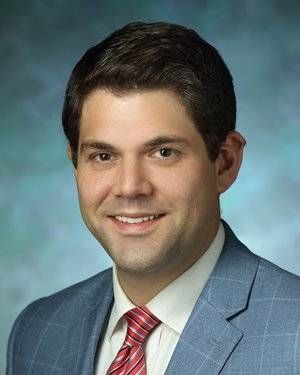Addiction: An Unspoken Risk of COVID-19
Here are ways you can seek help during the pandemic
My loneliest holiday was Christmas 2015, the year after my father's sudden death. The idea of making the trek home to eastern Kentucky where I had spent the previous 35 holidays was too much to handle. Instead, I settled on a solo holiday in my new apartment in Baltimore, hoping that its bright white walls and cozy fireplace would help me start a new holiday tradition.

But my vision of a relaxing holiday never materialized.
Instead, I found myself drinking too much and walking the cold, cobblestone streets of the historic city, trying to figure out how I could feel better when everything I did (whether isolating or socializing) seemed to make things worse.
I had an in-between life. Not willing to join the rest of society for the holiday, but unable to sit alone with my grief either. And now I find myself in a similar predicament, as the ongoing reality of the COVID-19 pandemic intersects with the holiday season.
For many of us, 2020 has required a similar in-between life that is anchored on one end by the need to stay away from the deadly threat of the coronavirus, foregoing our normal routines to isolate, while also making sure that we don't sacrifice our mental health in the process. And this tension between physical and mental health is even more amplified among older adults who are at risk for the most severe effects of the virus.
"You may start drinking more or maybe taking your prescription medication more to cope."
An Increase in Older Adults Seeking Treatment
These cumulative stressors can push us to rely on things, not people, to cope with the ongoing social isolation, financial burdens and anxiety. And according to substance use researchers, including me, these "things" are likely to include alcohol and other substances such as tobacco and opioids.
Older adults might be particularly vulnerable to the risks of addiction right now.
Historically, adults over 50 have been underrepresented in medical research including studies focused on addiction. But this is changing as leading health organizations, including the American Psychological Association, have sounded the alarm on the needs of the growing older adult population.

One study, authored by Andrew Huhn, assistant professor of psychiatry and behavioral sciences at the Johns Hopkins University School of Medicine, and Dr. Greg Hobelmann, chief medical officer of Ashley Addiction Treatment in Maryland, found a steady increase – about 7% a year between 2004 to 2017 – in the number of adults 55 and over seeking treatment for the first time for alcoholism.
There are similar trends for opioid abuse. One study shows a 53% increase in the number of older adults seeking first-time treatment for opioid use disorder between 2013 to 2015. And these trends correspond to an alarming rise in opioid overdose death rates among older adults, which have now begun to surpass rates associated with younger cohorts.
Our Commitment to Covering the Coronavirus
We are committed to reliable reporting on the risks of the coronavirus and steps you can take to benefit you, your loved ones and others in your community.
Read Next Avenue's Coronavirus Coverage
These patterns could reflect two things: the population growth of boomers and an increased reliance on alcohol or other substances to cope with age-related health issues such as sleep disorders, chronic pain and depression. Unfortunately, each of these conditions can compound the detrimental effects of substance use including risk of falls and cognitive impairment.

Trauma experienced later in life, including the loss of a loved one or retirement from a decades-long career, could precipitate problematic substance use, according to Huhn.
"Your whole life changes in dramatic ways as you age and I am not sure that people are being adequately supported through those transitions," says Huhn. "You may start drinking more or maybe taking your prescription medication more to cope, and if you are isolated from others, perhaps due to the pandemic or other life circumstances, then who is looking out for you and your well-being?"
Options for Seeking Help
What should you do if you are concerned about your alcohol and substance use during the pandemic?
The people I interviewed – scientists, treatment providers and older adults who have successfully navigated addiction later in life – recommend seeking help in whatever way feels right for you:
- Find resources on the internet (I recommend those developed by public health organizations including SAMSHA and the Canadian Centre on Substance Use and Addiction).
- Get support from your primary care doctor or counselor without ever leaving your home. Telehealth – using your computer or phone for health care – has grown significantly during the pandemic (supported by increased health care coverage and technological innovation) and efforts are underway to make it a permanent part of addiction treatment.
- Try smartphone apps such as SoberBuddy that sends motivational tips for managing substance use or social media resources such as the QuitforCovid campaign that encourages smokers to quit now, given the effects COVID-19 has on the respiratory system.
- Check out substance use support groups found on Google and Facebook.
We aren't alone as we navigate the stressors of life.
And as you navigate these resources, think through your personal goals.
If you want to completely stop your alcohol or drug use, that's the model of Alcoholics Anonymous (AA) and Narcotics Anonymous.
If you want to reduce your substance use, so-called "harm reduction" approaches can be tailored to older adults and can focus on reducing your alcohol use, switching to safer nicotine products instead of smoking (including vaporized nicotine) or enrolling in methadone or buprenorphine maintenance treatment for opioid addiction.
"Regardless of which type of support you seek out, it should be a non-threatening situation that allows you to comfortably discuss your goals and preferences for navigating your substance use issues," says Hobelmann.
For Bill Zitzman, a 67-year-old living in the Baltimore area and in recovery for alcohol use, finding sobriety on his own terms was exactly what worked for him. He sought out AA and built a social network that has supported him for the last 15 years.
"It's the sense of belonging that helps many people, including finding a place where you can talk and share your concerns with people that understand," says Zitzman.
That may be the bottom line, and a lesson I learned Dec. 26, 2015, when I decided it was time to ask for help.
We aren't alone as we navigate the stressors of life, including the ongoing COVID-19 pandemic and the upcoming holiday season. Reaching out to someone to share our struggle, regardless of our age, might be the key to helping all of us move on to healthier and happier times.


